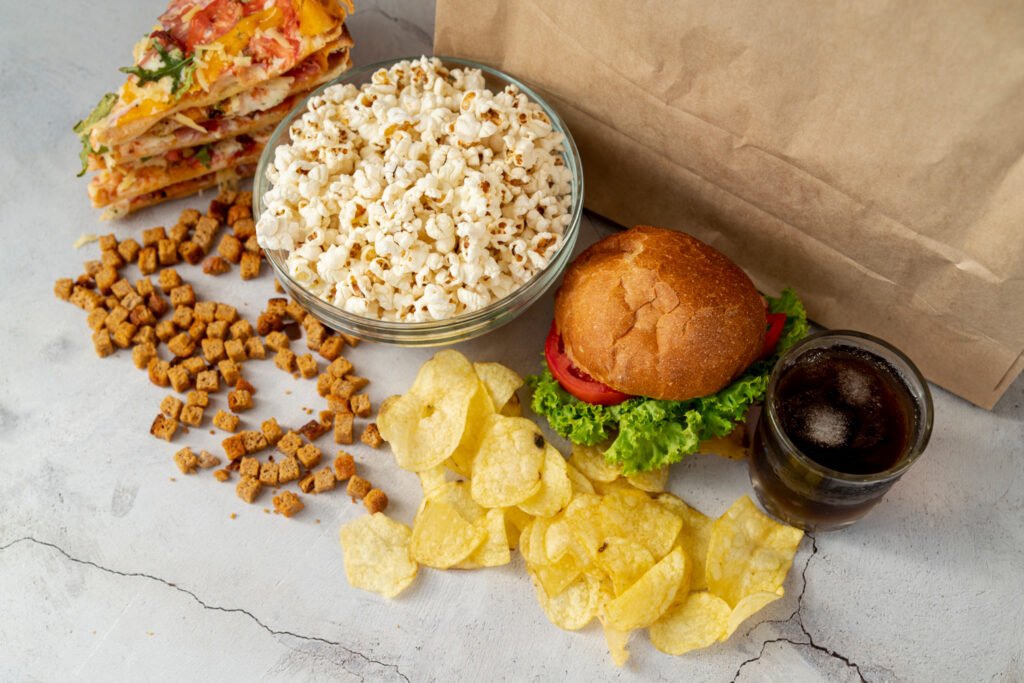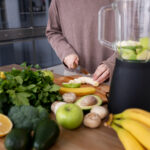
In this article
Overview
We all know that staying hydrated is crucial for good health, especially during hot weather or intense physical activity. However, what if some of the foods and drinks you enjoy daily are working against your hydration goals? Many people are unaware that certain dietary choices can actually contribute to dehydration, leaving you feeling sluggish, tired, and more at risk for health problems. In this article, we’ll uncover the hidden culprits that could be depleting your body of essential fluids and offer tips on how to stay hydrated while still enjoying your favorite treats.
Understanding Dehydration and Its Hidden Triggers
Dehydration happens when your body loses more fluids than it takes in, causing an imbalance that can affect everything from your energy levels to your cognitive function. While factors like not drinking enough water or sweating excessively are well-known causes, your diet plays a significant role as well. Foods high in sodium, sugar, and caffeine can increase fluid loss, while alcohol acts as a diuretic, leading to more frequent urination. But dehydration isn’t just about what you eat or drink—how often and in what quantities can make a big difference too
Top Foods and Beverages That Can Cause Dehydration
- Salty Snacks and Fast Foods
Salty snacks like chips, pretzels, and processed fast foods like burgers and fries are packed with sodium. High sodium levels force your kidneys to work harder to excrete excess salt, leading to increased urine production and fluid loss. A study involving young adults showed that those who consumed higher amounts of salt were less hydrated, even though they drank more fluids. To counteract this, opt for low-sodium snacks like fresh fruits and vegetables that not only satisfy your cravings but also contribute to your hydration. - Alcoholic Drinks
Alcohol is a well-known diuretic, meaning it promotes urine production. Drinking alcohol, especially in large quantities, can quickly lead to dehydration. Alcohol also impairs your body’s ability to sense temperature changes, making you less aware of overheating and the need to hydrate. To stay safe, alternate alcoholic drinks with water and choose beverages with lower alcohol content, such as light beer or wine. - Sugary Beverages
Sodas, energy drinks, and even fruit juices can be surprisingly dehydrating. These sugary drinks can cause fluid loss in the gut and stress the kidneys, especially when consumed in place of water. Studies have shown that rehydrating with sugary drinks after intense exercise can actually harm the kidneys and lead to acute kidney injury. For a healthier alternative, stick to water or unsweetened drinks that won’t disrupt your hydration levels. - Caffeine-Loaded Energy Drinks
Energy drinks not only contain high levels of caffeine but also a hefty dose of sugar. This combination can slow down fluid absorption and increase urine output, especially during exercise or in hot environments. If you’re reaching for an energy boost, consider switching to caffeine-free herbal teas or simply hydrating with water and a balanced diet. - Processed Meats and Salty Condiments
Processed meats like bacon, ham, and sausages, along with condiments like soy sauce and ketchup, are often loaded with sodium. Regular consumption can easily push your salt intake over the recommended daily limit, leading to dehydration. To reduce your risk, try flavoring your meals with fresh herbs, spices, and low-sodium alternatives. - Fried and Spicy Foods
Fried foods are not only high in unhealthy fats but also often seasoned with excessive salt. Spicy foods, while delicious, can raise your body temperature and lead to sweating, which further depletes your body’s water reserves. Balance out these meals with hydrating sides like cucumber salad or a yogurt-based dip. - High-Protein Diets
Protein is an essential nutrient, but consuming it in large amounts can have a dehydrating effect. The breakdown of protein produces nitrogen, which requires more water to process and excrete through urine. High-protein diets can be taxing on the kidneys and increase fluid loss. To maintain balance, ensure you’re drinking plenty of water and include hydrating foods like fruits and vegetables in your meals. - Sugary Snacks and Sweets
Foods high in added sugars, such as candies and desserts, can also contribute to dehydration. Excess sugar in the bloodstream draws water from your cells, leading to fluid loss. Over time, this can impact your hydration status, making it essential to moderate your intake of sweet treats
The Importance of Staying Hydrated
Water makes up about 60% of the human body and is vital for countless bodily functions, including regulating body temperature, supporting digestion, and maintaining healthy skin. Dehydration can disrupt these processes, leading to symptoms like headaches, dizziness, fatigue, and even more severe conditions like kidney stones and urinary tract infections.
Interestingly, by the time you feel thirsty, your body is already slightly dehydrated. This makes it important to proactively consume fluids throughout the day, not just when you’re parched. Aim for at least 8-12 cups of water daily, more if you’re active or in a hot climate. Incorporating hydrating foods into your diet, such as watermelon, cucumbers, and citrus fruits, can also help you meet your hydration needs.
How to Enjoy Your Favorite Foods Without Dehydration
It’s not necessary to completely avoid the foods and drinks that can contribute to dehydration. Instead, focus on moderation and balance. Pair salty or sugary foods with water-rich fruits and vegetables, and make a habit of drinking water throughout the day. If you enjoy a night out with drinks, alternate each alcoholic beverage with a glass of water to keep dehydration at bay.
Incorporating simple changes like these can help you maintain optimal hydration levels while still enjoying your favorite meals and snacks. Remember, the key to good hydration is not just what you eat or drink, but how you manage your overall diet and lifestyle.
The Takeaway
Staying hydrated is more than just drinking water—it’s about making smart choices throughout your day. By being aware of the foods and drinks that can lead to dehydration and balancing them with hydrating alternatives, you can ensure your body stays well-hydrated, healthy, and ready to take on whatever comes your way. So next time you reach for a salty snack or a sugary drink, think about how you can pair it with a hydrating option to keep your body in balance
A Quick Review
Certain foods and drinks, like salty snacks, sugary beverages, alcohol, and high-protein diets, can contribute to dehydration by increasing fluid loss or reducing fluid absorption. To stay hydrated, it’s essential to balance these choices with water-rich foods and regular water intake. Moderation is key, and pairing potentially dehydrating foods with hydrating options can help maintain proper hydration levels and overall health
Sure, here’s a version without using the specific numbers:
Frequently Asked Questions
- What foods are most likely to cause dehydration?
- Foods high in salt, processed meats, sugary treats, and high-protein foods can lead to dehydration.
- How does alcohol cause dehydration?
- Alcohol acts as a diuretic, increasing urine output and causing fluid loss.
- Can sugary drinks dehydrate you?
- Yes, consuming sugary drinks can upset fluid balance and contribute to dehydration, especially in large amounts.
- Are caffeinated drinks dehydrating?
- Caffeinated beverages can increase urine production, potentially leading to dehydration if consumed excessively.
- How can I stay hydrated while enjoying my favorite snacks?
- Pair salty or sugary snacks with hydrating fruits and vegetables, and drink plenty of water throughout the day.
- Is it true that high-protein diets can dehydrate you?
- Yes, high-protein diets can increase fluid loss through urine, so it’s important to stay hydrated.
- What are some hydrating foods I can eat?
- Foods like watermelon, cucumbers, citrus fruits, and yogurt are great options for staying hydrated.
- How much water should I drink daily to stay hydrated?
- It’s recommended to drink plenty of water daily, adjusting your intake based on activity level and climate.











